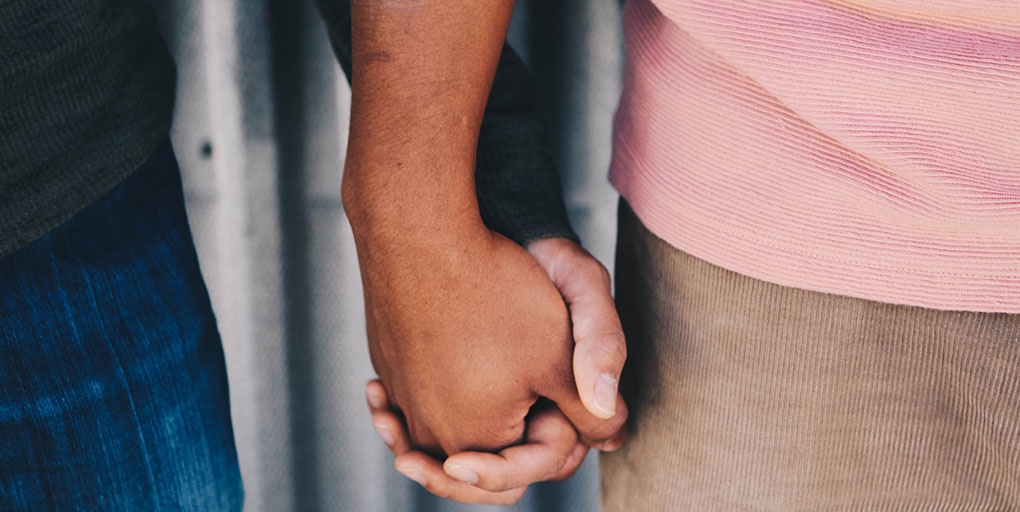People who are disabled, particularly those who are visibly disabled, are usually treated as if they are not sexual. This happens on an individual level, but just as important, this happens on a social level, systemically. Disability, in all the ways it gets formally and informally defined, is not seen to encompass sexuality. Disabled bodies are not seen as powerful, desirable or sexual.
It doesn’t have to be this way. Things can change. And in the work of disability activists, scholars, artists and other disabled people one can see shifts in some communities and some parts of society. At one time disability was excluded all together from conversations about sexuality, now it sometimes gets a sidebar.
In some ways, this shift mirrors the shift to greater inclusion of people who identify as gay and lesbian in mainstream discussions of sexuality. And there are certainly links between homophobia – the multiple ways that gay, lesbian and bisexual people are marginalized and excluded – and ableism, which in part describes how people with disabilities are marginalized and excluded.
So what happens if you’re disabled and gay? Or you live with a disability and feel yourself to be lesbian or queer, or you don’t have a word for it but you know that the people you desire to have sex with are not the people whom others think you should have sex with?
This experience is difficult in large part because of the way homophobia impacts people who have lived experience of disability.
Here are some of the common things people experience:
Growing up gay and disabled
Many kids with disabilities who think they might be gay, lesbian, bisexual or queer grow up being treated by their families as if they aren’t sexual. They don’t get “the sex talk”, there’s no talk of long-term relationships or marriage, and even the rules that are used to curtail their siblings’ sexual explorations (like curfews or not having people in their room without a parent present) aren’t imposed on them because they aren’t considered necessary. There is a general denial of any sexual potential or identity, and this makes any sexual exploration, never mind one that may be seen as transgressive or wrong even in a so-called normal person, that much harder.
In families where there may be some acknowledgment that a person with a disability can be sexual, it is almost always tied to being heterosexual. In fact, heterosexuality may be held out as a hope that a person with a disability may not be so “abnormal” after all. Well-meaning friends and family may say things like “maybe you’ll get married” or “maybe you’ll be able to have a child“. But these statements also express something else: “There’s no way that you are going to grow up to be queer or into BDSM or a swinger”.
To add to this external oppression, many kids with disabilities grow up feeling as if their need for support is a burden on their family. And they will often stay in the closet because they get subtle, and sometimes not so subtle, messages that they shouldn’t add to that burden by being “even more different” by being gay, lesbian, bisexual or queer. They may respond to these messages by hiding or denying a crucial part of who they are.
This experience is not unlike other people who live with multiple marginalized identities and are made to feel they should be grateful for the privilege of being sexual at all, and shouldn’t “rock the boat” by expressing sexual desires or beliefs that run counter to the mainstream.
Finding community and community access
Most gay, lesbian and bisexual communities are inaccessible to folks with disabilities. There is just as much “ableism” in these communities as any other. Social events will be held in spaces that are physically inaccessible. Accommodations (like ASL interpreters for people who are deaf and hard of hearing) are rarely offered or even considered. And some gay communities, for example, can hold even more rigid standards for beauty and desirability, to the point where you may feel if you can’t have a body that’s muscular, chiseled and capable of having sex six times a night, you can’t be “properly gay“.
These experiences of being left out are incredibly painful, and they can be even more difficult when the people doing the exclusion are themselves part of a smaller marginalized group where you feel you belong. Some people describe it as not just a denial of what I can do, but a denial of who I am. The result is that people may hide who they are or who they desire, or they may even come to deny it to themselves.
The effects on individuals and relationships of all this discrimination is terrible. There’s a social effect as well. All of the above experiences which contribute to people staying in the closet means that out in public we tend to see fewer folks who both identify proudly as disabled AND as gay, lesbian, bisexual or queer. This leads a lot of people to think that this means that disabled queer people simply don’t exist, ignoring the ways that all of us contribute to the problem.
But the bottom line is that both homophobia and ableism create barriers to sexual expression for many people with disabilities. It’s these barriers, more than biology or bodies, that keep people invisible and silent.












